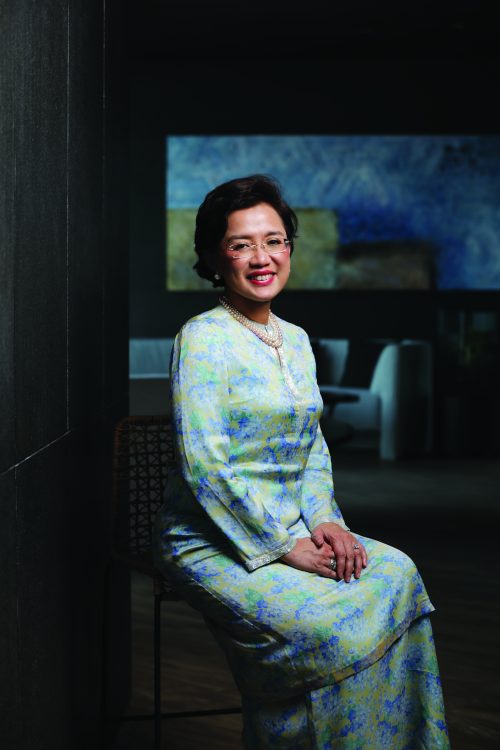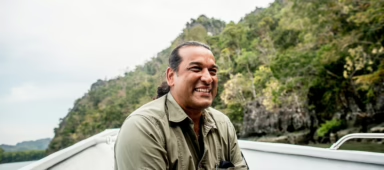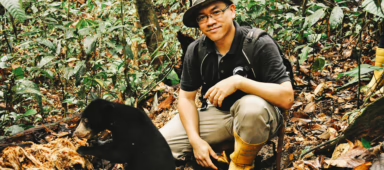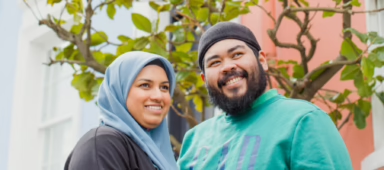As the world celebrates International Women’s Day on 8 March, Going Places dedicates the week to telling the stories of incredible Malaysian women who are doing amazing work for the causes closest to their hearts
If there is anyone who seems to have more hours in a day than the rest of us, that person would be Professor Dato’ Dr Adeeba Kamarulzaman. The good doctor is a busy woman who somehow manages to always be on top of things.
Among the 55-year-old’s long list of responsibilities: University of Malaya’s medical faculty dean (she is the first woman to helm the position), International AIDS Society president-elect (she takes over in 2020), chairman of the Malaysian AIDS Foundation, and a member of the newly formed National Health Advisory Council.
Dr Adeeba is also involved in numerous health-related programmes, including the 50 Keluarga Sihat (50 Healthy Families) pilot programme for households in Taman Medan, Selangor earning a monthly income of RM3,900 and below, a joint effort of the University of Malaya medical faculty, Taman Medan Health Clinic and volunteers working for Maria Chin Abdullah, a member of Parliament.
“I don’t see myself as a human rights activist or a feminist. I am just a doctor trying to do good,” she said. “I definitely feel deeply about social justice and social determinants of health.”
For Dr Adeeba, the challenges of being a woman at the professional level were not initially in the equation. “We have many women in leadership positions at UM. When I get visitors from overseas, they are struck by how many women in leadership there are at UM, including in my own faculty, where three of the four Deputy Deans are women. And they really marvel at it.”
However, she adds that as she moved up to more senior positions, she began to feel a difference. “I don’t think that it is necessarily a conscious thing (to invoke gender bias). But you know, men have their boys’ club and especially, at that higher level. Women tend to get excluded from certain things. It’s a cultural thing, so we Asian women have to ‘scream’ louder. We have to get ourselves heard more in order to push forward. Then, of course, we get accused of being pushy and aggressive, but I tend not to let these things worry me.”
Asked if she has ever encountered men who feel they need to explain things to her, she laughs, saying she has not while adding that she would probably outspeak them. “It would not work with me. I am not going to shrink if someone tries that with me. I would probably fight back.”
It is clear Dr Adeeba is passionate about her work in illicit drug use. She often goes to great lengths to explain that there are factors in addition to biological ones, such as lack of opportunities, social isolation in rural communities, poverty, unemployment and a broken family background, which can lead a person to compulsive drug use.
“It is not simply a moral or biological weakness. We don’t live in isolation. There is a whole range of circumstances that puts us at risk of different diseases. It is not so simple, and therefore, cannot be seen and dealt with in isolation,” she added.
In terms of drug addiction, Dr Adeeba has been championing drug policy reform from the days of getting harm reduction implemented in the country. That has been a 15-year-and-counting fight. To this end, she and professionals from the healthcare industry and legal and civil societies have been advocating for a more humane and evidence-based drug policy.
“This means we want people who use drugs who have not committed any other crimes or violence to be channelled for treatment, care, support and counselling for their drug use and not to be in prison simply because they use drugs. Prisons and compulsory drug detention centres are not places to help someone overcome their addiction, because drug use is a chronic relapsing medical condition,” she said.
To back their case are the findings from a study conducted by Dr Adeeba and her University of Malaya colleagues in conjunction with the Yale University School of Medicine and the Burnet Institute Melbourne, supported by the World Bank, which showed that those receiving voluntary methadone treatment had an 81 percent lower chance of relapse into heroin use compared to those in compulsory drug detention centres who relapse within 30 days of their release.
For her role as president-elect of the International AIDS Society, Dr Adeeba is currently working with the organisation to strengthen its governance and recraft its strategies as well as plan two signature IAS conferences in Mexico City and San Francisco in 2019 and 2020 respectively.
Dr Adeeba, who has just been reappointed dean of UM’s medical faculty for the third term, said its current challenge is to produce the best and most competent doctors who can respond to rapid changes in medicine and the digitisation taking place in healthcare.
Having revamped the undergraduate medical curriculum when she first became dean in 2011, she is now undertaking a much larger and ambitious project to put in place a National Specialist Training Programme. This involves revamping and strengthening programmes conducted by public universities and the Ministry of Health to ensure Malaysia trains more specialists in all disciplines to the highest standards, on par with the rest of the world.
“As dean, I want to ensure that the research we do here at UM is impactful to individuals and society at large. My role is also to provide support and connect my colleagues, especially the more junior members of the Faculty, with colleagues around the world to make sure that we at the university collaborate, learn and innovate with the best around the world.”





